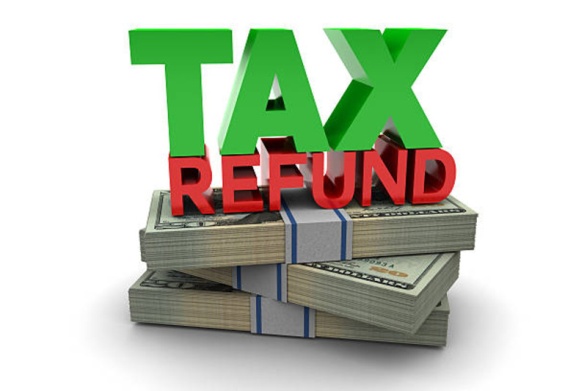Tracking Your Tax Refund in Pennsylvania: A Comprehensive Guide
Triston Martin
Nov 21, 2023
Tax season can be a stressful time of year, whether you're filing your taxes or tracking down your owed refund. Luckily, the state of Pennsylvania offers its citizens helpful online tools to make the process simpler and more efficient. With this comprehensive guide on tracking your tax refund in Pennsylvania, we'll provide you with all the resources needed to file quickly and stay up-to-date on exactly when you can expect that well-deserved money to arrive!
Basics of Filing Taxes in Pennsylvania:

Filing taxes can be a daunting task, but understanding the basics of the process can make it feel less overwhelming. In Pennsylvania, income tax is collected at a flat rate of 3.07% on all taxable income. Residents must file their state taxes by April 15th, along with their federal taxes. Some common deductions in the state include medical and dental expenses, charitable donations, and property taxes.
It's important to keep accurate records of your income and expenses throughout the year so that come tax season, you're prepared and organized. By taking the time to understand the basics of filing taxes in Pennsylvania, you can ensure that you're fulfilling your obligations and avoiding any penalties or fees.
How to Check Your Tax Refund Status?
After filing your taxes, the next big question on your mind might be when you'll receive your refund. Thankfully, the Internal Revenue Service (IRS) offers a straightforward solution to track the status of your tax refund. The tool is updated every 24 hours with the latest tax information, so you can stay up-to-date on your tax refund status and plan accordingly. So, don't let the mystery of your tax refund linger- check its status today!
Common Reasons for Delays in Reimbursement:
- Incorrectly filed forms: any errors or omissions in your tax return can lead to processing delays.
- Unresolved issues with the IRS: any discrepancies between your returns and other records could result in a delay.
- Filing Fraudulent Returns: filing false information on your taxes is illegal, so it's important to be honest for an accurate and timely refund.
It's also important to remember that the IRS can only process so many returns at once, and certain times of year may be busier than others. That means if you file early in the filing period or during peak tax season, your refund could take longer than usual to arrive. But don't worry- staying on top of your tax return status with the IRS tool will help you keep track of your refund and know exactly when to expect it.
Tips on Maximizing Your Refund and Reducing Tax Burden:
- Invest Wisely: Contributing to a retirement savings account or other investments can reduce the amount of taxes you owe.
- Take Advantage of Available Tax Credits: Certain tax credits are available for Pennsylvania residents that could reduce the amount of taxes owed.
- Utilize Professional Tax Software: Automated tax software can help ensure accuracy in your returns and maximize your tax refund.
By making smart, informed decisions about your finances and taxes throughout the year, you can maximize your return and reduce your overall tax burden. With a little planning, you can make sure that when it comes time to file taxes, you're set up for potential success!
Pennsylvania State Tax Resources:
If you're still feeling overwhelmed or confused by the Pennsylvania tax filing process, there are a few helpful resources available to make it easier. The PO Tax Center helps residents with any questions they have about taxes, while the PA Department of Revenue offers free online tax filing services for those who qualify. Additionally, several county offices also offer online tools to help you file your taxes and track your refund status.
Consequences for Filing Late or Omitting Information from Your Return:

Filing your taxes can feel like an overwhelming process, but it's essential to do so on time and with complete accuracy. Failure to file on time or omitting information from your tax return can result in unfavorable consequences. For one, you may incur late filing or payment penalties from the Internal Revenue Service (IRS). Additionally, if your tax liability is higher than expected due to omitted information, you may face further financial penalties or even legal action. It's crucial to take the time necessary to ensure your tax return is correct and complete to avoid any potential consequences down the road.
Resources to Help Understand the Pennsylvania Tax Process and Receive Professional Assistance:
Navigating the tax process can be a daunting task, but fear not - there are resources available to help! Whether you're a business owner or an individual taxpayer, Pennsylvania offers a range of options to guide you through the process and provide professional assistance. The Department of Revenue website is a great starting point, providing online tools, forms, and guides to help you better understand your obligations.
In addition, there are several tax preparation services throughout the state that can assist with filing your taxes and offer expert advice. By taking advantage of these resources, you can ensure that you're meeting your tax obligations accurately and with confidence.
Conclusion:
Filing taxes can be a complicated and overwhelming task, but with the right preparation and knowledge of the process, it doesn't have to be. By staying up-to-date on Pennsylvania tax regulations, taking advantage of available resources, and keeping accurate records throughout the year, you can ensure that your return is correct and complete and maximize your refund. And don't forget to use the IRS "Where's My Refund?" tool for a comprehensive overview of your return status and reimbursement timeline. With these helpful tips, you'll be ready to tackle tax season head-on!
FAQs:
Q: When should I file my taxes in Pennsylvania?
A: The deadline to file taxes in Pennsylvania is April 15th of every year.
Q: What information do I need to check the status of my refund?
A: To use the IRS "Where's My Refund?" tool, you'll need your Social Security number, filing status, and the amount of your refund.
Q: What if I receive a notice or letter from the IRS?
A: It's important to respond promptly to any notices or letters you may receive from the IRS as they can indicate an issue with your return that needs attention. If you have questions about responding to IRS communications, you should consult a tax professional.







